- Home
- Patricia Briggs
Wolfsbane Page 22
Wolfsbane Read online
Page 22
“Yes, sir.” She grinned, obediently losing herself in the pitted surface of the wooden floorboards.
There was almost a sensuous pleasure in working with the wood. Oak had a sparkle to it that always made her feel as if she ought to glow with joy while she worked with it. Not that she could do much more with it than look. A few shapes, some basic spells, and a little inventive lock picking—that was about as far as her command of magic went. That didn’t mean that she couldn’t enjoy it for its own sake.
“Now that you know the wood beneath you, children, I want you to concentrate on yourselves. Feel the texture of the floor against your skin, the fabric that separates you from the support of the wood. Ideally, of course, there would be no fabric, but I understand that you humans are sensitive about exposing your bodies. As I discovered in training Aralorn, the distraction of the clothing is less by far than the distraction of not wearing any at all.”
“Not to mention it’s warmer this way,” murmured Aralorn, her eyes still closed.
“Enough, child. I am the teacher here. You will merely listen and absorb my wisdom.”
“Of course. I shiver at your feet in humble awe at the—”
“Kessenih”—he interrupted—“would be happy to take over the training of you; I believe that she offered to do it the last summer you came to us.”
Kessenih, as Aralorn recalled, had wanted to peel the skin from her feet and make her walk back to Lambshold—who’d have thought she’d have gotten so upset over a chicken egg in her shoe?
“Yes, sir. Sorry, sir.”
Halven had changed, she thought. He’d always been cold to her, though he’d sponsored her training. After a moment she decided it could be that she, herself, had changed. As a child, she’d always been too much in awe of Halven to tease him. She’d never been able to relax around him, but now . . . everything crystallized, like a wooden puzzle that suddenly slid into shape.
It felt odd seeing herself in the way she had always been able to look into wood, to feel her heart beat and know why it did. Like an outsider, she could see into the fears and petty angers, touch the bond that tied her to her mate.
“I’ve got it ...” It startled her so much that she sat up and lost it again, but she laughed anyway.
“So you did,” said Halven, sounding pleasantly surprised. “See if you can explain it to Wolf. Sometimes two talk better than one.”
“What did you find?” asked Wolf.
“My center,” she said, sounding as shocked, as elated as she felt. “I’ve always been able to sense it well enough that I can use magic, but it was never clear. Like being in a boat and knowing that there’s water under me, but not being in the lake myself.”
“So this time you fell in?” Wolf sounded amused.
Aralorn grinned at him. “And the water was superb, thank you.”
“You,” said Halven to Wolf, “have no sense of center at all, that I can see. Without centering, it is impossible to be grounded—to be aware of yourself and your surroundings at a level where it is safe to work green magic. If we can get you there, then having your magic run amok should no longer be a problem.”
He ran a hand down his beard. “For human magic, this is not necessary—you control the magic with your thinking self. Like working a logic problem, with just a touch of artistry to give it form. Green magic is just the opposite. Your . . . emotions, your needs, generate the magic with just a touch of conscious control. Aralorn has been working half-blind for most of her life, and you are wiggling puppet strings without knowing which string is connected to which puppet.” He looked pleased with his analogy, savoring it for a moment before turning back to Aralorn. “You found it once—do it again.”
It took her a while before she could do it reliably, but once she had it, Halven went back to work on Wolf.
If it had been difficult for Aralorn to relax into her center, it was nightmarish for Wolf. Control had been his bulwark for most of his life, a defense against the things he had done and what was done to him. Unless he could give it up, he would never be able to control his magic: a paradox he understood in his head, but not in his heart, where it mattered.
It made for a long afternoon. By the end of it, he was sweating, Halven was sweating, and Aralorn was exhausted, but Wolf came out of it with a better sense of self, if not precisely his center. An achievement that left Halven nodding grudgingly.
“At least,” he said, helping Wolf to his feet, “you know that there are strings on your fingers now. If you don’t know what they do, you can elect not to tug on them.” He sounded almost as tired as he looked.
“Thank you,” said Wolf.
Halven smiled slyly. “Couldn’t do less for my sister’s daughter’s mate, now could I?” He slid from old man to bird shape. “I expect you to keep her in line.”
“How?” asked Wolf, amused.
Halven let out a bark of laughter. “Don’t know. I’ve never seen it done. Open the shutters now, and I leave you children to your rest.”
“Well,” Aralorn said after Halven had left, “I don’t know about you, but I’m hungry.”
Wolf gave her what might have been a wolfish smile without his scars, looking more relaxed than she’d ever seen him. “I could eat a sheep.”
“You think so?” she said thoughtfully, pulling on her boots. “I’m not so sure; the local shepherds are awfully quick with their arrows.”
He laughed, changing gracefully into wolf shape.
Most of the family was already eating when they made it to the great hall. Aralorn slipped into her old place between Falhart and Correy. Nevyn, sitting directly across from her, pointedly didn’t look up when she sat down. Freya shrugged apologetically once and otherwise ignored her husband’s distress.
“. . . when I came out of the village smithy, there was my meek and ladylike wife screaming at the top of her lungs.” Falhart stopped to eat a bite of food, giving Aralorn a quick view of his wife on his other side with her head bowed and a flush creeping up her cheekbones.
“I thought something was wrong and was charging to the rescue when I realized what she was saying.” He cleared his throat and raised his bass rumble to a squeaky soprano. “Three geese, I tell you! I need three. I don’t want four or two—I need three. I don’t care if they are mated pairs. I am going to eat them, not breed them!” Falhart laughed.
Aralorn was too tired to join in the usual family chatter and picked at her food. The familiar scents and voices, some deeper now than they had been, were soothing.
She let her eyes trail across her siblings with the magic she’d been working all day. She’d occasionally been able to use her magic to look deeply into a person, but never for more than a moment or two.
It was an odd experience, her senses interpreting what her magic told her sometimes as color—Falhart radiated a rich brown that warmed those around him. Irrenna was musical chimes, clear and beautiful. Even though he sat at the far end of the table, Aralorn could feel Gerem’s magic flickering eagerly, vibrating on her skin like the wings of a moth. One of the little children, a toddler, had it, too. She’d have to remember to tell her father . . . She turned abruptly and caught Nevyn staring at her.
Wide-eyed, she saw what Halven had meant when he’d said that Nevyn was broken and poorly mended. She had no experience to interpret what she saw, but it was like looking at a tree split by lightning. As the thought occurred to her, that’s what she saw, as if an illusionist had superimposed the image over Nevyn’s human form. One side of the tree struggled to recover, but the branches were gnarled, and the leaves were edged with an unhealthy gray. The other side was black and burnt.
Nevyn pulled his eyes away, but that didn’t release Aralorn from the vision. Sharp teeth closed on her hand, and she dropped her eyes to see Wolf beneath the table, glowing like lightning. Dazed, she blinked her eyes rapidly, only to see the bright wolf imposed on her eyelids.
Wolf growled, and Aralorn took in a deep breath and set her magic aside.
/>
“You are quiet tonight,” said Correy in her ear. “Have you found out anything more about Father?”
His tone was conversational, so he hadn’t noticed her doing anything unusual.
“Enough to be hopeful,” she said, striving for a normal tone.
“Do you know who might have done it?” asked Freya.
Warily, Aralorn looked at her, but she saw only the face that Freya had always shown her.
Aralorn shrugged and, because she was thinking about what had just happened rather than paying attention to the conversation, she said more than she should have. “I think so, but he is dead now—so knowing who he is doesn’t do us much good.”
“Who?” asked Irrenna from the head of the table, her voice sharp.
Aralorn put down her knife and fork. “No one it would be healthy to accuse at this point. When I’m more certain of my facts, I’ll tell you. I promise.”
Irrenna looked at her narrowly for a moment, then nodded. “I’ll hold you to your promise.”
ELEVEN
The castle was quiet in the early-morning hour they’d chosen for their meeting. She and Wolf got to the bier room before dawn, more because she was too nervous to sleep longer than anything else. The guards had gotten used to her coming and going at odd hours, though this morning’s portal defender had given an odd look to the hen she’d stolen from the kitchen coop.
Wolf told her that he might need it if he decided to break the spell right then. Wolf hadn’t had to catch the blasted thing, of course.
She paced restlessly in the little room, taking a twisted path around the bier and the woven chicken basket, stopping now and again to touch her father.
Wolf lay with his nose tucked between his forepaws, watching her pace. “They’ll be here soon enough. Stop that.”
“Sorry”—she sat on her heels next to him and leaned against the wall—“I’m just anxious.”
“More anxious than the hen,” he commented shortly, “and with less reason, too.”
As if to emphasize his point, the hen clucked contentedly in its nest of hay. Aralorn stuck a sore finger in her mouth—the chicken had been upset when she grabbed it. “Nasty critter, anyhow.”
“Who’s a nasty critter?” asked Gerem suspiciously, pulling the curtain aside so he could enter.
“The hen,” said Aralorn, pointing at the villain with her chin.
Gerem peered at the battered crate. “What’d you bring a hen here for? Mother’s going to pitch a fit!”
“To free your Father,” replied Wolf.
Gerem came as close to jumping out of his skin as anyone Aralorn had ever seen. Three shades whiter than he’d been when he came in, he stared at Wolf.
“I see Kisrah informed him completely,” murmured Wolf sarcastically, wagging his tail gently as he returned the stare. “How much do you want to bet we get to inform him what method we’re using as well.”
“We needed him here,” warned Aralorn. “I don’t think that we can complain how it was done.” She stood up and turned to her brother. “Gerem, I’d like to introduce you to my—to my Wolf. At one point in time, he went by the name of Cain—son of Geoffrey ae’Magi. I’d suggest you be polite to him; at present, he appears to be the best chance we have of resurrecting Father.”
“The old ae’Magi’s son is a shapechanger?”
Aralorn blinked at him. One of the things her brother didn’t know, apparently, was Cain ae’Magison’s reputation. She supposed that made a certain amount of sense. Gerem had been a young boy when Cain dropped out of public view.
“Sometimes,” agreed Aralorn. “I find it a good thing that he takes after his mother’s side of the family.”
“Dead?” asked Wolf. “Of course, Father’s dead as well.”
She rolled her eyes at him. “Do you have to go out of your way to intimidate everyone? Wouldn’t it be nice if we could all work together this morning?”
“Ah,” said Kisrah, entering the room rather languidly.
He had to duck around the curtain to make certain it didn’t bend the pale pink feather that was set jauntily into his elaborate hairstyle. Wearing a three-foot-long feather was not something Aralorn would have done in his place; but then, she wouldn’t have worn pink with scarlet and emerald either. The brass bells on the heels of his shoes were nice, though—if impractical.
“I thought I would be the first one here. I see you brought the chicken. Marvelous. I thought I might have to do it.”
“We ought to make you do it,” said Wolf thoughtfully, “if only to see what the chickens would do when they heard those bells.”
“Unkind,” admonished Kisrah. “To intimate that I would risk scuffing these boots chasing chickens—what do you think I studied magic for, dear man?”
“They are joking,” said Aralorn, watching Gerem’s face. There were some benefits to Kisrah’s three-foot-long feather—it was hard to be frightened in the presence of such a creation.
Unexpectedly, Gerem grinned. “I’d place bets on Lord Kisrah. Nevyn told me about the time you chased a pick-pocket into the heart of the infamous slums of Hathendoe and came back unscathed. A chicken should be child’s play.”
“Stole my best gloves,” agreed Kisrah solemnly. “Purple with green spots, just the color and shape of spring peas.”
Gerem laughed but stopped when he saw Kisrah’s mournful face.
“Don’t worry about hurting his feelings,” rumbled Wolf. “He knows what the rest of the world thinks about his clothes.”
Reassurance was not exactly Wolf’s strong point, so Aralorn was pleasantly surprised that he’d gone out of his way to smooth the waters.
The Archmage grinned, looking Gerem’s age despite his wrinkles. “Faugh, Cain, you ruined it. He would have begged my pardon in another moment.”
“I like the bells,” commented Aralorn, leaning a shoulder against the wall. “Perhaps I’ll get myself a pair.”
Kisrah looked superior. “Spies don’t wear bells.”
She snorted. “Fat lot you know about spies. I was in your household for three months, and you never even knew my name.”
He frowned, staring at her intently. “The maidservant . . . Lura—”
“Not even close.” She shook her head mournfully.
“She’s a shapeshifter,” said Gerem. “She wouldn’t look like herself.”
“Even if you did manage to guess what part she played, she’d never admit it,” added Wolf, coming to his feet.
He took on human form, leaving off the mask and the scars—for Gerem’s sake, Aralorn thought. She glanced at her brother, who was looking nervous again. Yes, she was definitely going to have to do something about the black clothing. It was hard to look intimidating in . . . say, yellow. She grinned at the thought of Wolf dressed in yellow, with a bow to hold his hair back in its queue.
Kisrah drew in his breath at seeing Geoffrey’s face on Wolf.
“You need to wear a different color,” she said out loud, to distract both Wolf and Kisrah from something neither cared to think about. “Black is so . . . so—”
“Conservative,” chided Kisrah, recovering from his initial shock.
Gerem looked from Kisrah in pink, red, and green to Aralorn in her muddy-colored tunic and trousers, then advised dryly, “Keep the black.”
Wolf, bless his soul, smiled—a small smile that bore little resemblance to the charm of his father’s. “I intend to.”
The curtain rattled again, and Nevyn shut it carefully behind him. He surveyed the room, his eyes stopping on Wolf.
“Cain,” he said, in a tone that was more of an acknowledgment than a greeting.
At his entrance, Wolf had gone still, almost, thought Aralorn, apprehensive.
“Nevyn.”
“It’s been a long time. I—I—I had forgotten how much you look like him.” The stutter irritated Nevyn, and he stiffened further.
Rather than make things worse, as was his general reaction to people who feared him, Wolf merely no
dded. “Shall we begin?”
“Yes,” agreed Kisrah. “We’re all here now.” He looked around, and for lack of a better place, he pulled himself up on the bier to sit beside the Lyon. “What do you need from us?”
“I need to know what you have wrought,” said Wolf. “So I can unmake it.”
“Then I’ll tell my part first.” The ae’Magi wiggled his feet, and the bells chimed softly in response.
“Tell us all of it,” suggested Aralorn. “Not just the spell—not everyone here knows what has been going on. I suspect that Gerem, for one, has no idea what happened to him, and we still only have guesses about who is responsible for this mess.”
“The whole story?” asked Kisrah. “There are parts that should remain secret.”
“Everyone here knows how my father died, or should,” said Wolf. “We might as well tell our version, too—after you are through with your story, Kisrah.”
“Very well, then,” agreed the ae’Magi. “I’m no storyteller, but I’ll tell you as much as I remember. Shortly after Geoffrey—the ae’Magi—died . . . I had a dream.”
Aralorn saw Gerem stiffen, like a good hound on a scent: Gerem had dreamed, too.
Kisrah continued. “Geoffrey came to me as I slept and sat upon the end of my bed—just as he used to.
“ ‘My friend,’ he said. ‘I have nowhere else to turn. I need your magic to come to my touch.’
“This surprised me greatly, for he was the greatest mage I ever saw.
“ ‘A spell?’ I asked. ‘Can’t you work it yourself?’
“He shook his head chidingly, and said, with that grin he used when I was being particularly obstinate, ‘Dead men cannot use magic, child.’
“I woke up, sweating like a frightened horse, but there was nothing in my room that hadn’t been there when I went to sleep. I thought at first that it had simply been a dream. But I’d forgotten what Geoffrey was.”
“A dreamwalker,” said Nevyn softly.
Kisrah nodded. “Exactly.” He looked at Gerem. “Do you know what dreamwalking is?”

 Wolfsbane
Wolfsbane When Demons Walk
When Demons Walk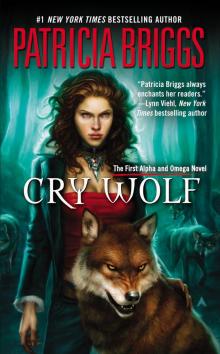 Cry Wolf
Cry Wolf On the Prowl
On the Prowl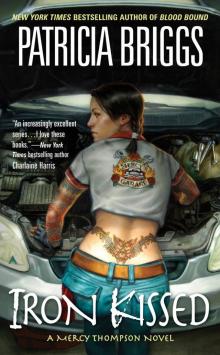 Iron Kissed
Iron Kissed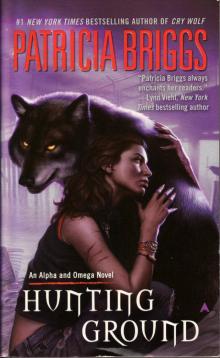 Hunting Ground
Hunting Ground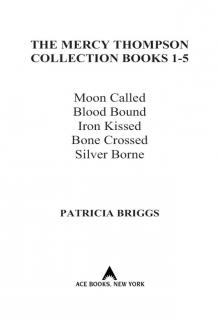 Patricia Briggs Mercy Thompson: Hopcross Jilly
Patricia Briggs Mercy Thompson: Hopcross Jilly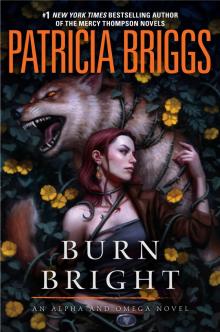 Burn Bright
Burn Bright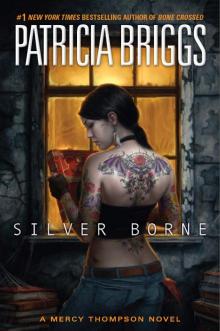 Silver Borne
Silver Borne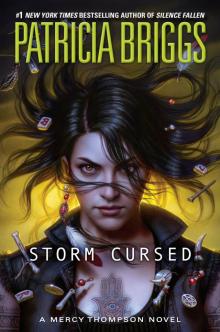 Storm Cursed
Storm Cursed Shifting Shadows
Shifting Shadows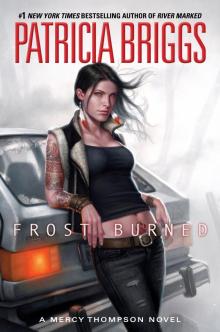 Frost Burned
Frost Burned River Marked
River Marked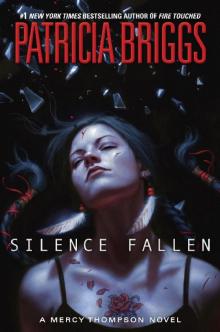 Silence Fallen
Silence Fallen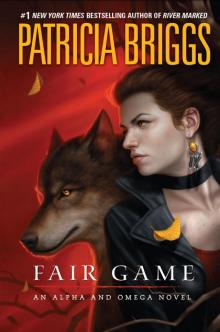 Fair Game
Fair Game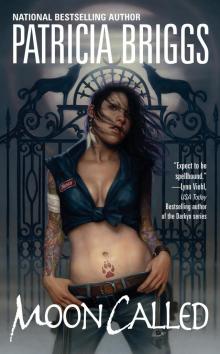 Moon Called
Moon Called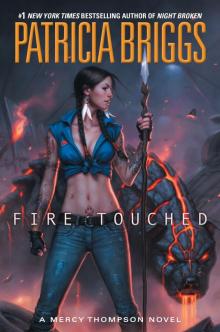 Fire Touched
Fire Touched Dead Heat
Dead Heat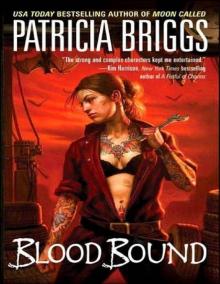 Blood Bound
Blood Bound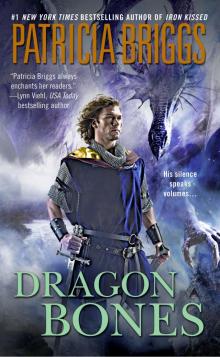 Dragon Bones
Dragon Bones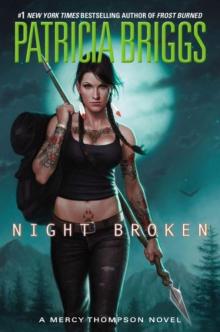 Night Broken
Night Broken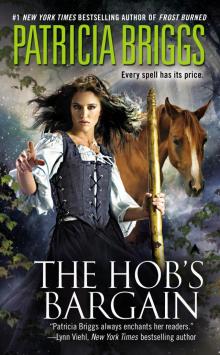 The Hobs Bargain
The Hobs Bargain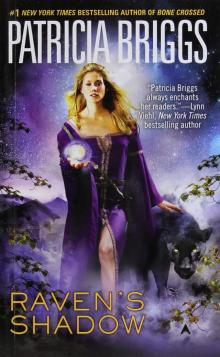 Ravens Shadow
Ravens Shadow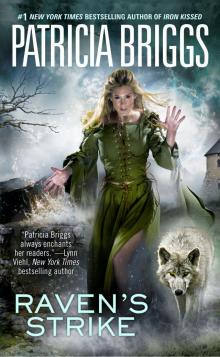 Ravens Strike
Ravens Strike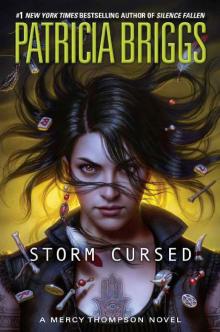 Storm Cursed (A Mercy Thompson Novel)
Storm Cursed (A Mercy Thompson Novel)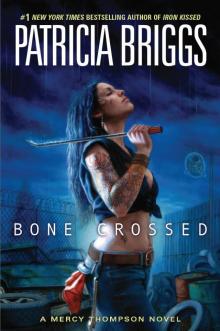 Bone Crossed
Bone Crossed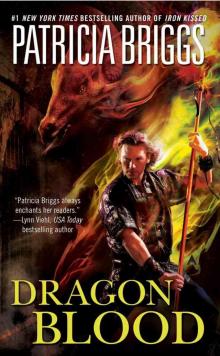 Dragon Blood
Dragon Blood Smoke Bitten: Mercy Thompson: Book 12
Smoke Bitten: Mercy Thompson: Book 12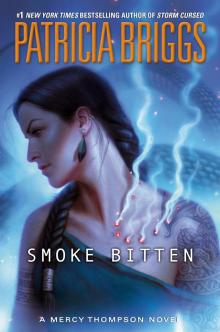 Smoke Bitten
Smoke Bitten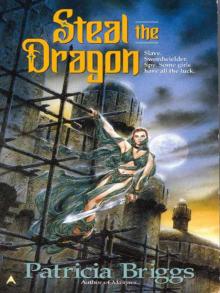 Steal the Dragon
Steal the Dragon 0.5 On The Prowl (alpha and omega)
0.5 On The Prowl (alpha and omega)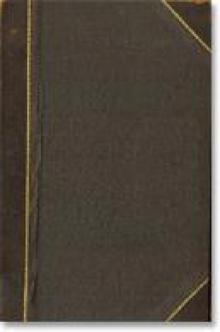 Alpha and Omega
Alpha and Omega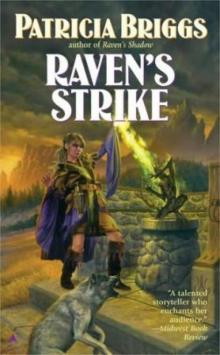 Raven's Strike rd-2
Raven's Strike rd-2![[Mercy 03] - Iron Kissed Read online](http://i1.bookreadfree.com/i/03/24/mercy_03_-_iron_kissed_preview.jpg) [Mercy 03] - Iron Kissed
[Mercy 03] - Iron Kissed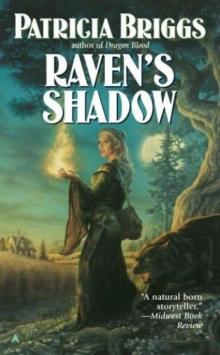 Raven's Shadow rd-1
Raven's Shadow rd-1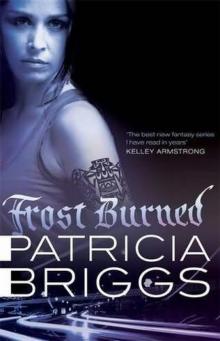 Frost Burned mt-7
Frost Burned mt-7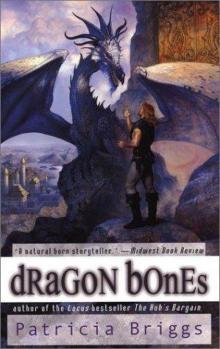 Dragon Bones h-1
Dragon Bones h-1 Shifting Shadows: Stories from the World of Mercy Thompson
Shifting Shadows: Stories from the World of Mercy Thompson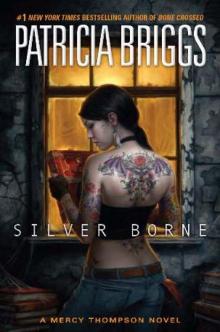 Silver Borne mt-5
Silver Borne mt-5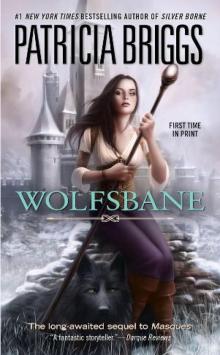 Wolfsbane s-2
Wolfsbane s-2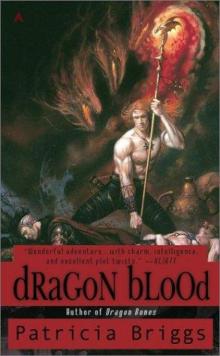 Dragon Blood h-2
Dragon Blood h-2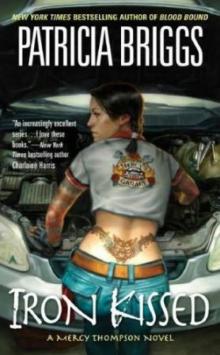 Iron Kissed mt-3
Iron Kissed mt-3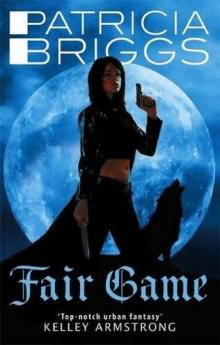 Fair Game aao-3
Fair Game aao-3 Masques s-1
Masques s-1![[Hurog 01] - Dragon Bones Read online](http://i1.bookreadfree.com/i1/04/03/hurog_01_-_dragon_bones_preview.jpg) [Hurog 01] - Dragon Bones
[Hurog 01] - Dragon Bones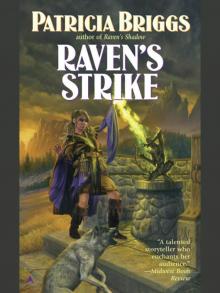 Raven s Strike
Raven s Strike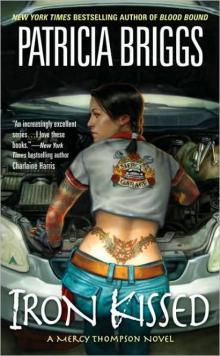 Mercedes Thompson 03: Iron Kissed
Mercedes Thompson 03: Iron Kissed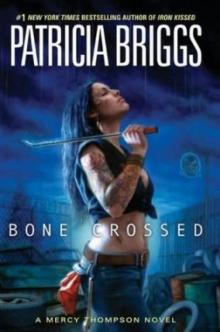 Bone Crossed mt-4
Bone Crossed mt-4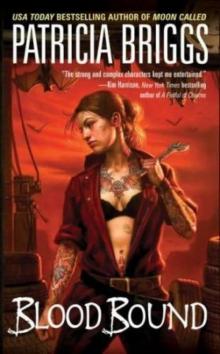 Blood Bound mt-2
Blood Bound mt-2![[Mercy 01] - Moon Called Read online](http://i1.bookreadfree.com/i2/04/09/mercy_01_-_moon_called_preview.jpg) [Mercy 01] - Moon Called
[Mercy 01] - Moon Called River Marked mt-6
River Marked mt-6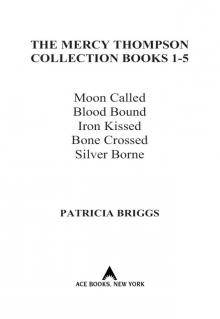 The Mercy Thompson Collection
The Mercy Thompson Collection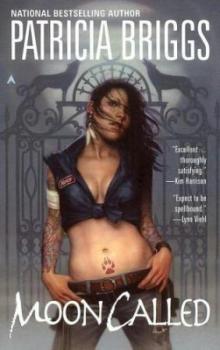 Moon Called mt-1
Moon Called mt-1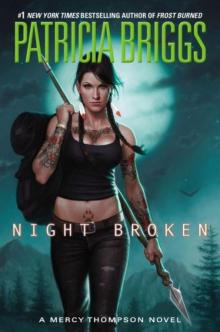 Mercy Thompson 8: Night Broken
Mercy Thompson 8: Night Broken